Home>diy>Building & Construction>How To Start A Construction Company In NYC
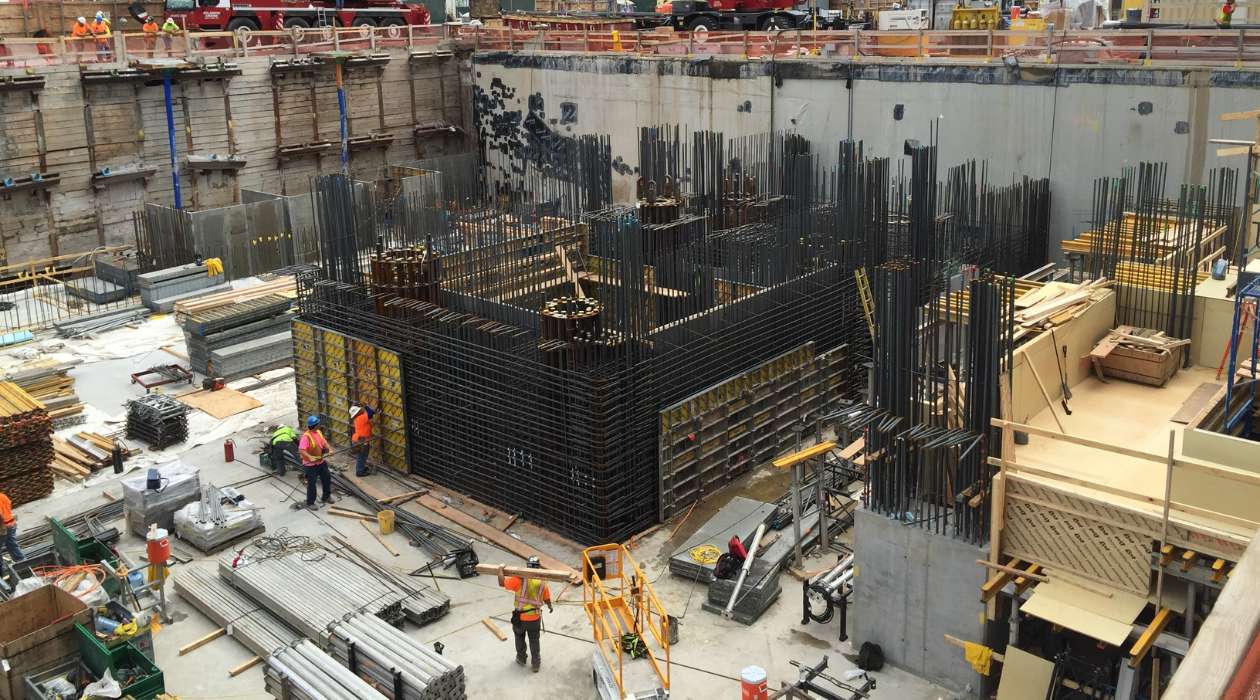

Building & Construction
How To Start A Construction Company In NYC
Modified: February 25, 2024
Learn how to start a construction company in NYC and navigate the building construction industry with our step-by-step guide. Ensure success in your new venture.
(Many of the links in this article redirect to a specific reviewed product. Your purchase of these products through affiliate links helps to generate commission for Storables.com, at no extra cost. Learn more)
Introduction
Starting a construction company in New York City can be an exciting and promising endeavor. With its bustling real estate market and constant demand for new infrastructure, the construction industry in NYC offers ample opportunities for success. However, building a construction company from scratch requires careful research, strategic planning, and the ability to navigate through the complex legal, financial, and operational aspects of the business.
In this article, we will provide you with a comprehensive guide on how to start a construction company in NYC. From obtaining the necessary permits to managing finances and marketing your services, we will cover all the essential elements to help you set a solid foundation for your construction business.
Before diving into the process, it is important to note that starting a construction company requires a deep understanding of the industry, technical expertise, and strong leadership skills. It is crucial to have a solid background in construction or to partner with professionals who have the necessary knowledge and experience.
Now, let’s explore the step-by-step process of starting a construction company in NYC.
Key Takeaways:
- Thorough research, strategic planning, and compliance with legal requirements are essential for starting a successful construction company in NYC. Emphasizing financial management, marketing, and safety is crucial for long-term growth and reputation.
- To thrive in the competitive NYC construction market, embracing innovation, fostering strong client relationships, and prioritizing quality workmanship and safety are key. Continuous learning, adaptability, and resilience are vital for sustained success.
Research and Planning
Before starting any business, thorough research and planning play a vital role. The construction industry in NYC is dynamic and competitive, so it’s crucial to gather information and identify your target market.
Start by researching the current state of the construction industry in NYC. Look into market trends, projected growth, and the types of projects that are in demand. This information will help you determine your company’s focus and specialization.
Next, conduct a comprehensive analysis of your competitors. Identify their strengths and weaknesses, their pricing strategies, and their target market. This will enable you to differentiate your company and develop a unique selling proposition.
Identify your target market by considering factors such as the type of construction projects you want to specialize in, the geographical area you want to serve, and the target audience for your services. This will help you tailor your marketing efforts and position your company effectively.
Develop a detailed business plan outlining your company’s goals, strategies, market analysis, competitive analysis, and financial projections. This plan will serve as your roadmap and will be essential when seeking funding or investors.
Additionally, consider the challenges and risks associated with the construction industry. Identify potential obstacles and develop contingency plans to mitigate them. This will help you navigate through the uncertainties and ensure the long-term success of your company.
By conducting thorough research and creating a comprehensive plan, you will be well-prepared to tackle the next steps in starting your construction company in NYC.
Legal Requirements and Permits
Starting a construction company in NYC requires complying with various legal requirements and obtaining the necessary permits and licenses. It is crucial to ensure that your company operates in accordance with the law to avoid legal issues and penalties.
First and foremost, you need to legally establish your construction company. Decide on the appropriate legal structure for your business, such as a sole proprietorship, partnership, limited liability company (LLC), or corporation. Consult with a legal professional to understand the benefits and implications of each structure and choose the one that best suits your needs.
Next, register your construction company with the appropriate authorities. In NYC, this includes registering with the New York State Department of State and obtaining a Certificate of Assumed Name (DBA) if you are operating under a name other than your own legal name.
Obtain the necessary permits and licenses to conduct construction activities. These permits may vary depending on the scope and nature of your projects. Common permits include a general contractor’s license, a home improvement contractor’s license, and a scaffold user permit. Familiarize yourself with the specific requirements and application processes for each permit and ensure timely renewal.
It is also important to comply with safety regulations and obtain the necessary certifications. The Occupational Safety and Health Administration (OSHA) sets standards for workplace safety, and construction companies must adhere to these regulations. Additionally, certain construction projects may require specific certifications, such as LEED certification for sustainable construction or asbestos handling certification.
Ensure that your construction company has adequate insurance coverage. This includes general liability insurance, workers’ compensation insurance, and vehicle insurance. Consult with an insurance professional to understand the specific insurance requirements for construction companies in NYC and to find the best coverage options for your business.
Keep in mind that legal requirements and permit regulations can change over time. Stay updated with the latest regulations and ensure ongoing compliance to operate your construction company legally and ethically.
Financing and Funding
Starting a construction company in NYC requires capital to cover various expenses, including equipment, supplies, labor, marketing, and operational costs. Here are some key considerations for financing and funding your construction business:
1. Personal Savings: Utilize your personal savings to fund the initial stages of your construction company. This demonstrates your commitment and can help attract potential investors or lenders.
2. Business Loans: Explore business loan options from banks or financial institutions. Prepare a comprehensive business plan and financial projections to increase your chances of securing a loan. Consider the interest rates, repayment terms, and collateral requirements before choosing a loan option.
3. Investors: Seek funding from angel investors, venture capitalists, or private equity firms who are interested in supporting construction startups. Prepare a compelling pitch deck highlighting your company’s potential for growth and profitability.
4. Crowdfunding: Consider crowdfunding platforms to raise funds for your construction business. Share your business idea, goals, and rewards for backers to attract crowdfunding support.
5. Equipment Leasing: Instead of purchasing expensive construction equipment outright, consider leasing or renting the equipment you need. This can help reduce upfront costs and provide flexibility as your business grows.
6. Government Grants and Programs: Research government grants, incentives, and programs available for construction businesses in NYC. These resources may provide financial support or assistance in specific areas, such as renewable energy projects or minority-owned businesses.
7. Partnerships and Joint Ventures: Collaborate with other construction companies or industry professionals to share costs and resources for larger projects. This can help alleviate financial burdens and bring in additional expertise.
8. Line of Credit: Establish a line of credit with a financial institution to have access to funds when needed. This can provide flexibility and financial stability during periods of fluctuating cash flow.
Remember to develop a solid financial plan and budget to manage your finances effectively. Regularly review your financial performance, cash flow, and profitability to make informed decisions and ensure the financial sustainability of your construction company.
Location and Office Setup
Choosing the right location for your construction company in NYC is crucial as it can impact your accessibility to clients and projects. Here are some considerations for selecting a location and setting up your office:
1. Location: Research different neighborhoods in NYC to identify areas with high construction activity and demand. Consider proximity to potential clients, suppliers, and transportation routes. Additionally, evaluate the availability of parking and the potential for expansion in the future.
2. Office Space: Determine the size and layout of your office space based on your current needs and future growth projections. Consider factors like the number of employees, meeting spaces, storage requirements, and any specialized areas needed for your construction business.
3. Lease or Purchase: Decide whether you want to lease or purchase your office space. Leasing offers flexibility, especially if you anticipate future expansion or changes in your business. On the other hand, purchasing may offer long-term cost savings and potential equity in the property.
4. Equipment and Technology: Equip your office with the necessary tools and technology to ensure smooth operations. This includes computers, software for project management and accounting, communication systems, and security measures to protect sensitive data.
5. Furniture and Amenities: Furnish your office with comfortable and functional furniture for your employees and clients. Provide amenities such as a reception area, conference room, break room, and restroom facilities.
6. Legal Considerations: Ensure compliance with local laws and regulations when setting up your office. Obtain any necessary permits or licenses related to your office space, signage, and safety requirements.
7. Collaboration Spaces: Consider setting up collaboration spaces within your office to encourage teamwork and creativity. This could include designated areas for brainstorming, project planning, and client meetings.
8. Eco-friendly Practices: Implement sustainable practices in your office setup. Use energy-efficient lighting, recycle waste materials, and promote paperless operations to minimize your environmental impact.
Remember, your office space should reflect your company’s values, professionalism, and commitment to quality. Create a welcoming and productive environment that fosters collaboration and supports the success of your construction business.
Read more: How To Start Up A Landscaping Company
Hiring and Workforce
Building a skilled and reliable workforce is crucial for the success of your construction company in NYC. Here are some key considerations for hiring and managing your workforce:
1. Job Descriptions: Clearly define the roles and responsibilities for each position within your company. Develop detailed job descriptions that outline the qualifications, skills, and experience required for each role.
2. Recruitment Strategies: Utilize various recruitment strategies to attract qualified candidates. This can include posting job openings on online job boards, leveraging social media platforms, attending job fairs, and networking within the construction industry.
3. Screening and Interviews: Implement a thorough screening process to evaluate candidates’ qualifications and fit for your company culture. Conduct structured interviews, check references, and assess their technical skills and industry knowledge.
4. Training and Development: Provide ongoing training and development opportunities for your workforce to enhance their skills, keep up with industry trends, and improve job performance. This can include safety training, certifications, and professional development programs.
5. Retention Strategies: Implement strategies to retain your top performers and reduce turnover. Offer competitive salaries, benefits packages, and opportunities for advancement. Foster a positive work environment with open communication, recognition programs, and a strong company culture.
6. Subcontractors and Consultants: Consider utilizing subcontractors and consultants for specialized tasks or projects. Make sure to establish clear agreements and communicate expectations to ensure smooth collaboration.
7. Health and Safety: Prioritize the health and safety of your workforce. Comply with OSHA regulations, provide necessary safety equipment and training, and regularly conduct inspections to identify and address potential hazards.
8. Employee Engagement: Foster a culture of employee engagement and involvement. Encourage feedback, implement employee recognition programs, and provide opportunities for employees to contribute ideas and suggestions for improvement.
9. Diversity and Inclusion: Embrace diversity and promote inclusivity within your workforce. By fostering a diverse team, you can benefit from a wider range of perspectives, ideas, and experiences.
10. Performance Management: Implement a performance management system to assess employee performance, provide feedback, and set goals. Regularly communicate with your employees to ensure they are meeting expectations and address any performance issues promptly.
Hiring and developing a skilled and motivated workforce is essential for the success and growth of your construction company. By investing in your employees and creating a positive work environment, you can build a strong team that will contribute to the long-term success of your business.
Equipment and Supplies
Having the right equipment and supplies is essential for the successful operation of your construction company in NYC. Here are some considerations when it comes to equipment and supplies:
1. Identify Your Needs: Assess the specific equipment and supplies required for your construction projects. Consider factors such as the type of projects you specialize in, the size of your workforce, and the resources needed to complete the work efficiently.
2. Equipment Purchasing or Renting: Decide whether purchasing or renting equipment is the best option for your company. Purchasing can provide long-term cost savings and asset ownership, while renting offers flexibility and avoids the upfront costs associated with equipment ownership.
3. Quality and Reliability: Invest in high-quality equipment and supplies that meet industry standards. Reliable equipment not only improves productivity but also ensures the safety of your workforce.
4. Maintenance and Repairs: Develop a maintenance schedule for your equipment to keep it in optimal condition. Regular maintenance can extend the lifespan of your equipment and minimize the risk of downtime during projects. Additionally, establish relationships with reputable service providers for repairs and emergencies.
5. Safety Equipment: Prioritize safety by providing appropriate safety equipment such as hard hats, safety glasses, gloves, and protective clothing. Ensure that your workforce understands and follows safety protocols and guidelines to prevent accidents and injuries.
6. Supplier Relationships: Establish relationships with reliable suppliers who can provide you with the necessary construction materials and supplies. Maintain open communication, negotiate favorable pricing, and ensure timely delivery to avoid project delays.
7. Technology and Software: Embrace construction technology and software solutions to streamline operations. This can include project management software, estimating and bidding software, and virtual design tools. Utilizing technology can enhance efficiency, accuracy, and communication within your team.
8. Inventory Management: Implement a system for inventory management to track and control the usage of equipment and supplies. This helps ensure that you have the necessary materials on hand for projects and reduces wastage.
Regularly assess your equipment needs, upgrade outdated equipment, and stay updated with industry advancements. By having the right equipment and supplies, you can enhance productivity, project quality, and overall efficiency in your construction operations.
Insurance and Risk Management
Insurance and risk management are essential aspects of protecting your construction company in NYC. The construction industry carries inherent risks, and having the right insurance coverage is crucial for the financial security of your business. Here are some key considerations for insurance and risk management:
1. General Liability Insurance: Obtain general liability insurance to protect your company against claims of property damage, personal injury, or other liabilities that may arise during construction projects. This coverage provides financial protection in the event of accidents or mishaps on the job site.
2. Workers’ Compensation Insurance: Workers’ compensation insurance is mandatory in most states, including NYC. It provides coverage for medical expenses, lost wages, and disability benefits for employees who are injured or become ill as a result of their work. Ensuring proper workers’ compensation coverage is not only a legal requirement but also demonstrates your commitment to your employees’ well-being.
3. Equipment and Property Insurance: Protect your construction equipment, tools, and property by obtaining insurance coverage specifically tailored for these assets. This coverage provides financial protection against theft, damage, or loss.
4. Professional Liability Insurance: Consider professional liability insurance, also known as errors and omissions insurance, to protect your company against claims arising from professional negligence or mistakes in design, consulting, or project management. This coverage is particularly relevant for construction firms engaged in architectural design, engineering, or consulting services.
5. Bonding and Surety Bonds: Depending on the type of projects you undertake, bonding may be required. Bonding provides financial assurance to clients that you will fulfill your contractual obligations. Surety bonds, such as bid bonds, performance bonds, and payment bonds, guarantee that you will complete the project as agreed upon and ensure payment to subcontractors and suppliers.
6. Risk Assessment and Mitigation: Conduct a thorough risk assessment of your construction operations to identify potential risks and hazards. Implement risk mitigation strategies, such as safety training programs, regular inspections, and adherence to industry regulations and best practices.
7. Contractual Risk Transfer: Review and negotiate contracts carefully to ensure that you are not assuming unnecessary risks. Transfer liability to subcontractors or other parties when appropriate, and make sure all contractual agreements are clearly defined and documented.
8. Consult with Insurance Professionals: Engage with insurance professionals who specialize in the construction industry to assess your insurance needs accurately. They can help you understand the specific risks associated with your business and recommend appropriate coverage options.
By having comprehensive insurance coverage and implementing proper risk management strategies, you can protect your construction company from potential financial losses and ensure the long-term stability and success of your business.
Marketing and Advertising
Effective marketing and advertising are crucial for growing your construction company’s presence and attracting new clients in the competitive market of NYC. Here are some key considerations for marketing and advertising your construction business:
1. Develop a Marketing Plan: Start by developing a comprehensive marketing plan that outlines your marketing goals, target audience, and strategies to reach them. Identify your unique selling proposition and competitive advantages to differentiate your construction company from others in the market.
2. Online Presence: Create a professional website that showcases your company’s services, projects, and testimonials from satisfied clients. Optimize your website with search engine optimization (SEO) techniques to improve its visibility in search engine results. Utilize online directories and review platforms to enhance your online presence.
3. Social Media: Leverage social media platforms like LinkedIn, Facebook, Instagram, and Twitter to connect with potential clients, showcase your work, and engage with your audience. Share project updates, industry insights, and educational content to establish yourself as an expert in the field.
4. Networking: Attend industry-related conferences, trade shows, and networking events to establish connections and build relationships with potential clients, architects, engineers, and other professionals in the construction industry. Actively participate in professional organizations and local business associations to expand your network.
5. Referrals and Testimonials: Encourage satisfied clients to provide testimonials and refer your construction services to others. Positive reviews and word-of-mouth referrals are powerful marketing tools in the construction industry.
6. Content Marketing: Create valuable and relevant content, such as blog posts, articles, or videos, that educates your audience about construction industry trends, best practices, and project showcases. This positions your company as a trusted resource and attracts potential clients.
7. Targeted Advertising: Utilize targeted advertising methods, such as online pay-per-click (PPC) advertising or targeted direct mail campaigns, to reach specific audiences and generate leads. Consider partnering with industry-related publications or websites for advertisement opportunities.
8. Branding and Logo: Develop a strong and consistent brand identity for your construction company. Design a professional logo and use it consistently across all marketing materials and platforms. Create a brand image that conveys trust, quality, and professionalism.
9. Client Testimonials: Request testimonials from satisfied clients and showcase them on your website and marketing materials. Positive testimonials and success stories help build trust and credibility with potential clients.
10. Track and Analyze Results: Regularly monitor and analyze the results of your marketing efforts. Use analytics tools to track website traffic, leads generated, and conversions. Adjust your strategies based on this data to optimize your marketing campaigns.
Remember, marketing and advertising require ongoing effort and adaptation to stay ahead in the competitive market. By implementing a well-rounded marketing strategy, you can elevate the visibility and reputation of your construction company in NYC.
Before starting a construction company in NYC, research and understand the local building codes, zoning regulations, and permit requirements to ensure compliance and avoid potential delays or fines.
Read more: How To Name A Construction Company
Client Acquisition and Networking
Acquiring new clients and building a strong network is essential for the growth and success of your construction company in NYC. Here are some key considerations for client acquisition and networking:
1. Identify Your Target Market: Define your target market based on the types of construction projects you specialize in, the industries you serve, and the geographic areas you want to focus on. This will help you tailor your marketing and networking efforts to reach the right audience.
2. Referrals and Word-of-Mouth: Develop strong relationships with your existing clients and encourage referrals. Satisfied clients can become your best advocates, helping you acquire new clients through positive word-of-mouth.
3. Attend Industry Events: Participate in industry events, trade shows, conferences, and seminars related to construction and real estate. These events provide excellent opportunities to network with potential clients, industry professionals, architects, engineers, and suppliers.
4. Join Professional Associations: Become a member of professional associations and organizations in the construction industry. Active participation in these groups can help you establish credibility, gain exposure, and connect with decision-makers and industry influencers.
5. Online Networking: Utilize online networking platforms like LinkedIn, industry forums, and construction-related online communities to connect and engage with potential clients, industry professionals, and influencers. Share valuable insights, participate in discussions, and demonstrate your expertise to build your online presence.
6. Collaborations and Partnerships: Collaborate with other professionals and businesses in complementary industries. For example, partnering with architects, real estate developers, or interior designers can lead to opportunities for collaboration and client referrals.
7. Thought Leadership: Establish yourself and your company as thought leaders in the construction industry. Share your expertise through guest blogging, speaking engagements, or hosting webinars and workshops. This positions you as an authority, helping you attract clients who value your knowledge and experience.
8. Market Research: Conduct market research to identify potential clients who may require your construction services. Analyze industry trends, upcoming projects, and changes in regulations to spot opportunities and tailor your pitch accordingly.
9. Follow-Up and Relationship Building: Consistently follow up with potential clients and maintain relationships with existing clients. Regularly provide updates, share industry insights, and demonstrate your commitment to customer satisfaction. Personalized communication and attention to clients’ needs can set you apart from your competitors.
10. Online Presence: Optimize your online presence and maintain an updated website and social media profiles. Showcase your past projects, client testimonials, and expertise to attract potential clients who research construction companies online.
Remember, client acquisition and networking require patience and consistency. Building trust and reputation takes time, but by following these strategies, you can expand your client base and establish a strong network of industry connections in NYC.
Project Bidding and Contracts
Project bidding and contracts are critical components of running a successful construction company in NYC. Winning bids and effectively managing contracts play a significant role in securing profitable projects and ensuring smooth project execution. Here are some key considerations for project bidding and contracts:
1. Bid Preparation: Thoroughly review the project specifications, scope, and requirements before preparing your bid. Understand the client’s expectations and budget constraints to develop a competitive and accurate bid.
2. Estimating and Cost Analysis: Prepare a detailed cost estimation, taking into account labor, materials, equipment, subcontractor costs, and overheads. Ensure accurate cost analysis and consider potential risks and contingencies when determining your bid price.
3. Submitting a Competitive Bid: Carefully prepare and submit bids that are competitive yet profitable. Balance your pricing strategy to differentiate yourself from competitors while considering the project’s financial viability and potential profitability.
4. Contract Review and Negotiation: Thoroughly review contract terms and conditions before signing. Negotiate contract terms where necessary, such as payment schedules, project milestones, change order procedures, or dispute resolution processes. Seek legal advice to ensure your company’s interests are protected in the contract.
5. Project Management: Develop a comprehensive project management plan to efficiently execute awarded projects. Set clear objectives, establish timelines, assign responsibilities, and communicate project milestones to your team and key stakeholders.
6. Change Orders: Effectively manage change orders, which occur when project scope or requirements change during construction. Clearly define the process of documenting, approving, and pricing change orders to avoid disputes and ensure fair compensation for additional work or materials.
7. Risk Management: Evaluate project risks and develop a risk management plan to mitigate potential issues. Address potential delays, unforeseen conditions, or supplier issues upfront to minimize disruptions and costly delays.
8. Document Control: Maintain accurate project documentation to ensure transparency and accountability. Establish a system for document control, including RFIs (Requests for Information), submittals, progress reports, and communication logs.
9. Communication and Collaboration: Foster effective communication and collaboration with clients, project stakeholders, subcontractors, suppliers, and your internal team. Clear and timely communication ensures that all parties are aligned and informed throughout the project lifecycle.
10. Compliance with Regulations: Ensure that your construction projects comply with relevant regulations, permits, and building codes in NYC. Stay up-to-date with local ordinances and regulations to avoid potential legal and financial consequences.
Proper project bidding and contract management are essential for the profitability and success of your construction company. By understanding the bid process, leveraging effective contracts, and implementing sound project management practices, you can secure and execute projects successfully in NYC’s competitive construction market.
Project Management and Execution
Effective project management and execution are crucial to ensure the successful completion of construction projects in NYC. Here are some key considerations for project management and execution:
1. Detailed Project Planning: Develop a detailed project plan that outlines the project scope, timeline, milestones, and resource allocation. Identify critical activities and establish a clear sequence of tasks to ensure smooth project execution.
2. Project Organization and Team Structure: Establish a project organizational structure and define team roles and responsibilities. Assign a project manager who will oversee the project and maintain effective communication with all stakeholders.
3. Effective Communication: Establish clear channels of communication among project team members, subcontractors, suppliers, and clients. Regularly communicate project updates, discuss issues, and ensure that everyone is aligned with project goals and expectations.
4. Resource Management: Efficiently manage resources, including labor, equipment, and materials, to ensure they are available when needed. Monitor resource utilization, anticipate needs, and make adjustments as necessary to prevent delays or overruns.
5. Budget and Cost Control: Develop a project budget and closely monitor costs throughout the project. Implement effective cost control measures to avoid exceeding the budget. Regularly review and track expenses, reconcile against the budget, and address any deviations promptly.
6. Risk Assessment and Mitigation: Conduct regular risk assessments to identify potential project risks and develop mitigation strategies. Proactively address potential issues to minimize their impact and ensure project continuity.
7. Subcontractor and Supplier Management: Select reputable subcontractors and suppliers and maintain good working relationships with them. Clearly define expectations, timelines, and deliverables in subcontractor agreements and ensure timely communication for coordination and to address any issues that may arise.
8. Quality Control and Inspections: Establish a robust quality control process to ensure that the work meets or exceeds industry standards and client expectations. Conduct inspections throughout the project to identify any deficiencies and take corrective actions promptly.
9. Change Management: Implement effective change management procedures to handle changes in project scope, specifications, or requirements. Document and review change requests, evaluate their impact on the project, and communicate any adjustments to the team and stakeholders.
10. Project Closeout: Plan for a systematic project closeout process, including conducting final inspections, ensuring completion of all contractual obligations, and obtaining necessary sign-offs from clients. Document lessons learned and conduct a project review to identify areas for improvement in future projects.
By implementing strong project management practices, you can effectively plan and execute construction projects in NYC, ensuring timely completion, quality workmanship, and client satisfaction. Effective project management ultimately contributes to the reputation and success of your construction company.
Safety and Compliance
Safety and compliance are of utmost importance in the construction industry in NYC. Prioritizing safety not only protects your workforce but also ensures that your construction company operates within legal and regulatory frameworks. Here are some key considerations for safety and compliance:
1. Safety Training and Education: Provide comprehensive safety training for all employees, including proper use of personal protective equipment (PPE), awareness of potential hazards, and adherence to safety protocols. Regularly educate your workforce on safe work practices and empower them to report any safety concerns.
2. Ongoing Safety Inspections: Conduct regular safety inspections at job sites to identify and mitigate potential hazards. Ensure that all equipment, machinery, and tools are in safe working condition. Address any safety issues promptly to prevent accidents and injuries.
3. Compliance with OSHA Standards: Familiarize yourself with the Occupational Safety and Health Administration (OSHA) standards and ensure compliance with their regulations. Maintain proper documentation of safety protocols, incident reporting, and employee training records as required by OSHA.
4. Safety Leadership: Foster a culture of safety by providing strong safety leadership. Ensure that management and supervisory staff actively promote and prioritize safety in all aspects of the construction process. Lead by example by consistently following safety protocols.
5. Emergency Preparedness: Develop and implement an emergency response plan that includes procedures for various potential emergencies, such as fires, accidents, or natural disasters. Train your workforce on emergency protocols and conduct regular drills.
6. Environmental Regulations: Adhere to environmental regulations and guidelines to minimize the impact of construction activities on the environment. Implement practices such as proper waste management, pollution prevention, and conservation of natural resources.
7. Permits and Licenses: Obtain all necessary permits and licenses required for construction projects in NYC. Comply with local regulations related to noise control, construction site signage, and public safety.
8. Safety Committees and Reporting: Establish safety committees or delegate safety responsibilities to specific personnel within your construction company. Regularly monitor and evaluate safety performance. Encourage employees to report any safety concerns or near-miss incidents to improve overall safety awareness.
9. Continuous Improvement: Strive for continuous improvement in safety practices. Analyze incident reports, conduct safety performance reviews, and implement necessary corrective actions. Regularly review and update your safety policies and procedures to align with best practices.
10. Safety Culture: Foster a strong safety culture within your construction company. Encourage open communication, empower employees to make safety-related decisions, and recognize and reward individuals and teams that prioritize safety.
By prioritizing safety and ensuring compliance, you not only protect your workers and reduce the risk of accidents but also enhance your reputation as a responsible and reliable construction company in NYC. Safety should always be at the forefront of your construction activities.
Read more: How To Sell A Construction Company
Quality Control and Inspection
Ensuring high-quality workmanship is essential for the success and reputation of your construction company in NYC. Implementing effective quality control and inspection processes helps to meet project requirements, deliver superior results, and maintain client satisfaction. Here are some key considerations for quality control and inspection:
1. Establish Quality Standards: Clearly define your company’s quality standards and ensure that they align with industry best practices and client expectations. Establish benchmarks and guidelines that all projects should adhere to for consistency and excellence.
2. Develop a Quality Control Plan: Create a comprehensive quality control plan that outlines the procedures, protocols, and checks to be performed throughout the construction process. Identify key control points and assign responsible parties to carry out inspections and tests.
3. Inspect Materials and Supplies: Conduct thorough inspections of incoming materials and supplies to verify their quality, quantity, and compliance with project specifications. Ensure that all materials are stored properly to prevent damage or degradation.
4. Monitor Work in Progress: Regularly monitor and review ongoing work to identify any potential issues or deviations from the project plans and quality standards. Address any concerns or deviations immediately to maintain quality and prevent rework.
5. Conduct Internal Audits: Periodically conduct internal audits to assess the effectiveness of your quality control processes. These audits help identify areas for improvement, ensure compliance with standards, and enhance overall quality performance.
6. Final Inspection: Perform a comprehensive and detailed final inspection before project completion. Verify that all work meets the specified quality standards, adheres to building codes and regulations, and satisfies client requirements. Make any necessary adjustments or corrections before handover.
7. Document Control: Maintain accurate and organized documentation related to quality control, including inspection reports, test results, and any deviations or corrective actions taken. Keep records of all approvals, certifications, and warranties.
8. Engage with Third-Party Inspections: Consider engaging third-party inspection services for objective assessments of quality and compliance. These inspections provide an unbiased evaluation, enhancing transparency and credibility.
9. Continuous Improvement: Foster a culture of continuous improvement by seeking feedback from clients, identifying lessons learned from completed projects, and implementing best practices. Regularly review and update your quality control processes to incorporate advancements and industry standards.
10. Employee Training and Accountability: Provide ongoing training to your employees on quality standards, best practices, and the importance of delivering high-quality work. Ensure that all team members understand their roles and responsibilities within the quality control and inspection processes.
By implementing robust quality control and inspection processes, you can ensure that your construction projects in NYC meet the highest standards of quality, resulting in client satisfaction, repeat business, and an enhanced reputation for your construction company.
Financial Management and Bookkeeping
Effective financial management and bookkeeping are essential for the success and sustainability of your construction company in NYC. Proper financial management allows you to make informed decisions, monitor cash flow, and ensure the financial health of your business. Here are some key considerations for financial management and bookkeeping:
1. Develop a Financial Plan: Create a comprehensive financial plan that includes projected revenues, expenses, and cash flow forecasts. Establish financial goals and benchmarks to track your business’s financial performance.
2. Track Income and Expenses: Maintain meticulous records of all income and expenses related to your construction projects. Use accounting software or hire a professional bookkeeper to ensure accuracy and efficiency in recording financial transactions.
3. Budgeting and Cost Control: Develop and adhere to a realistic budget to help control costs and avoid overspending. Regularly review and compare actual expenses against your budget to identify variances and take corrective actions when necessary.
4. Cash Flow Management: Monitor and manage your cash flow effectively to ensure you have enough funds to cover project costs and operational expenses. Implement practices to accelerate payments from clients and negotiate favorable payment terms with suppliers and subcontractors.
5. Project Cost Estimation and Analysis: Develop accurate cost estimates for your construction projects, considering all direct costs, indirect costs, and contingencies. Regularly analyze project costs to identify areas for cost reduction and improved profitability.
6. Financial Reporting: Generate regular financial reports, including profit and loss statements, balance sheets, and cash flow statements. Analyze these reports to gain insights into your company’s financial performance and make informed business decisions.
7. Tax Compliance: Stay updated with tax regulations and ensure compliance with all tax obligations. Consult with a tax professional to maximize tax deductions and credits while meeting your legal responsibilities.
8. Monitor Accounts Receivable and Payable: Regularly review and manage your accounts receivable to ensure timely collection of payments from clients. Similarly, manage your accounts payable by promptly paying bills and negotiating favorable terms to optimize cash flow.
9. Invest in Financial Software and Tools: Utilize financial software and tools to streamline your bookkeeping processes and gain insight into your financial performance. This can help you save time, reduce errors, and make data-driven financial decisions.
10. Seek Professional Guidance: Engage with financial professionals, such as accountants or financial advisors, to ensure that your financial management practices align with best practices and to gain expert insights on financial matters specific to the construction industry.
By effectively managing your finances and implementing proper bookkeeping practices, you can maintain financial stability, make informed decisions, and position your construction company for long-term success in NYC’s competitive market.
Business Growth and Expansion
As a construction company in NYC, pursuing business growth and expansion opportunities is essential for long-term success. Here are some key considerations to fuel your business growth and expansion:
1. Market Research and Analysis: Continuously conduct market research to identify emerging trends, new opportunities, and potential areas for expansion. Stay informed about the evolving needs and demands of clients in the construction industry.
2. Diversification of Services: Consider diversifying your range of construction services to cater to a wider client base. Explore new areas of specialization, such as sustainable construction or renovation projects, to tap into different market segments.
3. Geographic Expansion: Assess the feasibility of expanding your business beyond NYC to neighboring areas or other cities in the region. Conduct thorough market research to evaluate the demand for construction services in those areas and adapt your strategies accordingly.
4. Strategic Partnerships and Collaborations: Form strategic partnerships with other construction firms, architects, design professionals, or subcontractors to access new clients and expand your capabilities. Collaborate on larger projects that require a broader spectrum of expertise.
5. Acquisition of Competitors: Consider acquiring smaller or struggling construction companies within your target market to gain a larger client base, access new projects, or acquire specialized skills. Thoroughly evaluate potential acquisitions to ensure compatibility and synergy.
6. Branding and Marketing: Continue to invest in branding and marketing efforts to raise awareness of your construction company. Develop a strong online presence, optimize your website, utilize social media, and leverage industry events to enhance visibility and attract new clients.
7. Employee Development and Retention: Nurture and develop your workforce by providing training, career advancement opportunities, and competitive compensation packages. By fostering employee growth, you can retain talented individuals and position your company as a desirable employer in the industry.
8. Financial Planning and Capital Investment: Create a financial plan to support your growth strategies. Explore funding options, such as loans or partnerships with investors, to secure the necessary capital for expansion. Develop a solid financial framework to support the increased scale of your operations.
9. Technology Adoption: Embrace new construction technologies and tools to enhance productivity and efficiency. Explore Building Information Modeling (BIM), construction management software, and other innovative solutions that can streamline operations and set your company apart from competitors.
10. Customer Relationship Management: Nurture strong relationships with existing clients to retain their business and generate referrals. Focus on delivering exceptional customer service, maintaining regular communication, and seeking feedback to continuously improve your services.
Business growth and expansion require diligent planning, adaptability, and strategic decision-making. By embracing new opportunities, focusing on innovation, and delivering exceptional results, you can position your construction company for sustainable growth and success in the dynamic NYC market.
Conclusion
Starting and running a construction company in NYC can be a fulfilling and rewarding endeavor, but it also comes with its challenges. By following the steps outlined in this comprehensive guide, you can set a solid foundation for your business and position it for success.
From conducting thorough research and planning to ensuring compliance with legal requirements and obtaining the necessary permits, each step plays a crucial role in establishing your construction company. Additionally, focusing on financial management, implementing effective marketing strategies, and prioritizing safety and quality control are key factors that contribute to the growth and reputation of your business.
Remember to continuously adapt and innovate to stay competitive in the dynamic construction industry. Explore opportunities for diversification, geographic expansion, and strategic partnerships to fuel your business growth. Embrace technology and stay up-to-date with industry trends to remain efficient and offer cutting-edge solutions to your clients.
Building a skilled and motivated workforce, maintaining strong client relationships, and fostering a culture of safety and excellence will be vital in ensuring the long-term success of your construction company.
As you embark on your journey, seek the guidance of professionals, network with industry peers, and continuously learn and improve your skills and knowledge in the field of construction.
Starting and growing a construction company in NYC requires dedication, resilience, and adaptability. By carefully following the steps outlined in this guide and maintaining a strong focus on delivering quality workmanship, you can navigate the challenges and seize the opportunities in the construction industry, paving the way for a prosperous future for your construction company in NYC.
Frequently Asked Questions about How To Start A Construction Company In NYC
Was this page helpful?
At Storables.com, we guarantee accurate and reliable information. Our content, validated by Expert Board Contributors, is crafted following stringent Editorial Policies. We're committed to providing you with well-researched, expert-backed insights for all your informational needs.






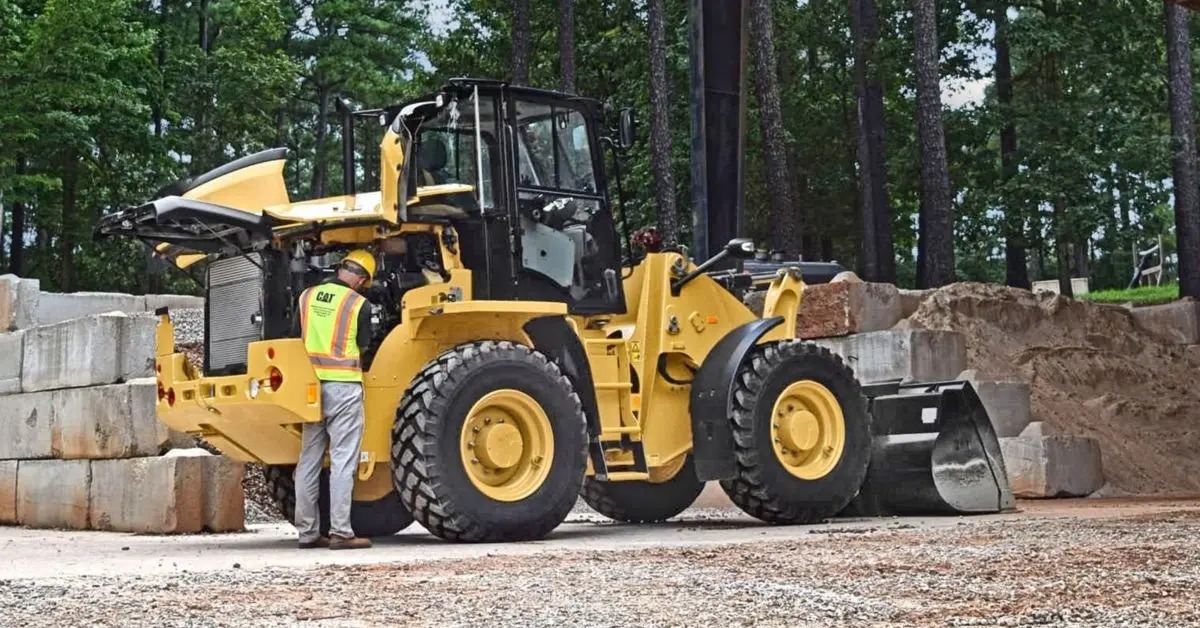

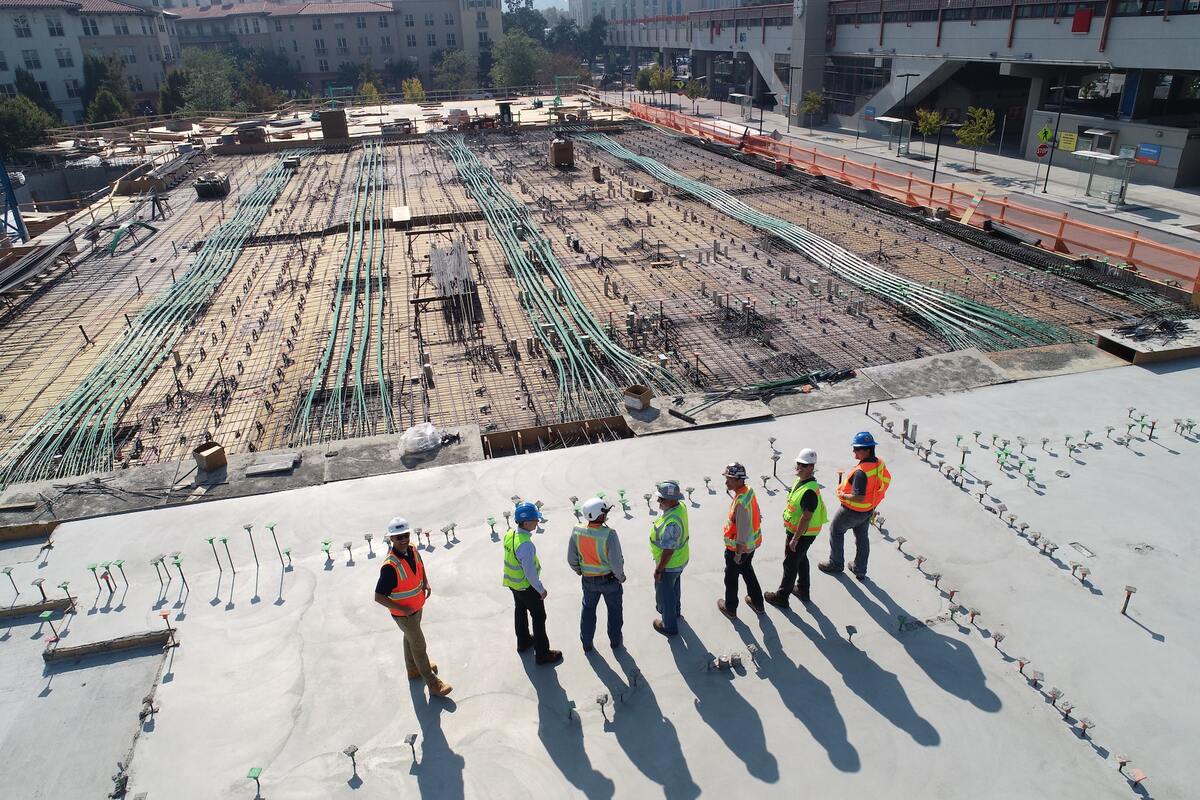
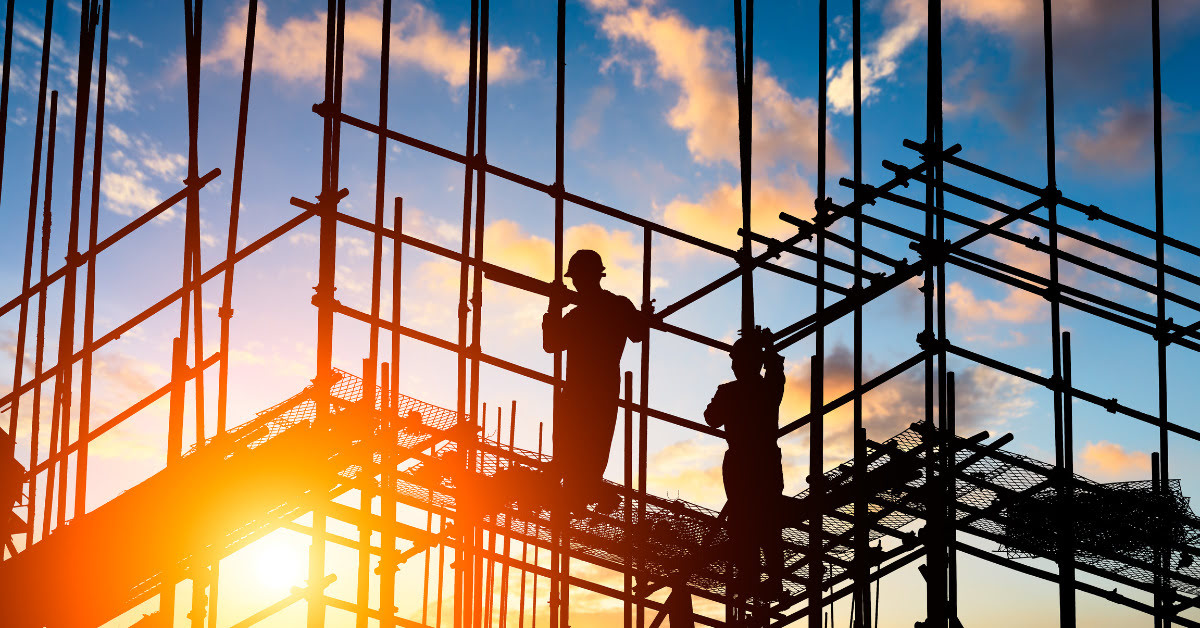
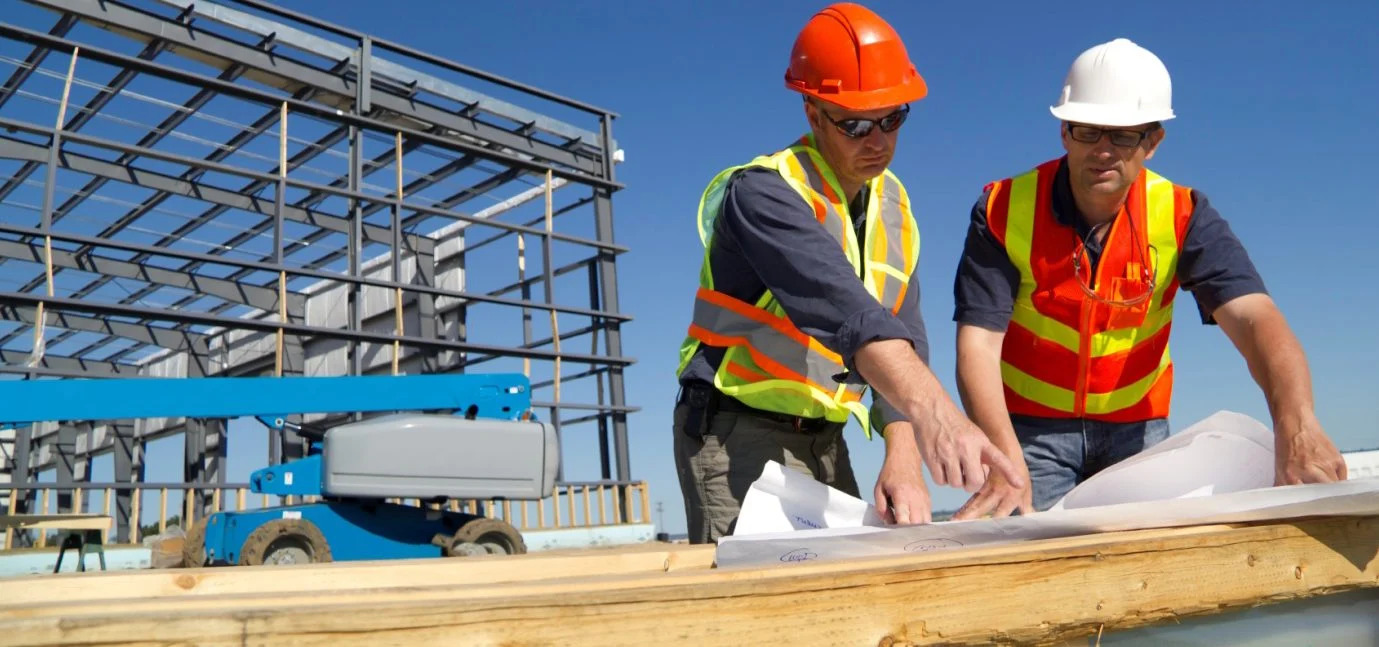
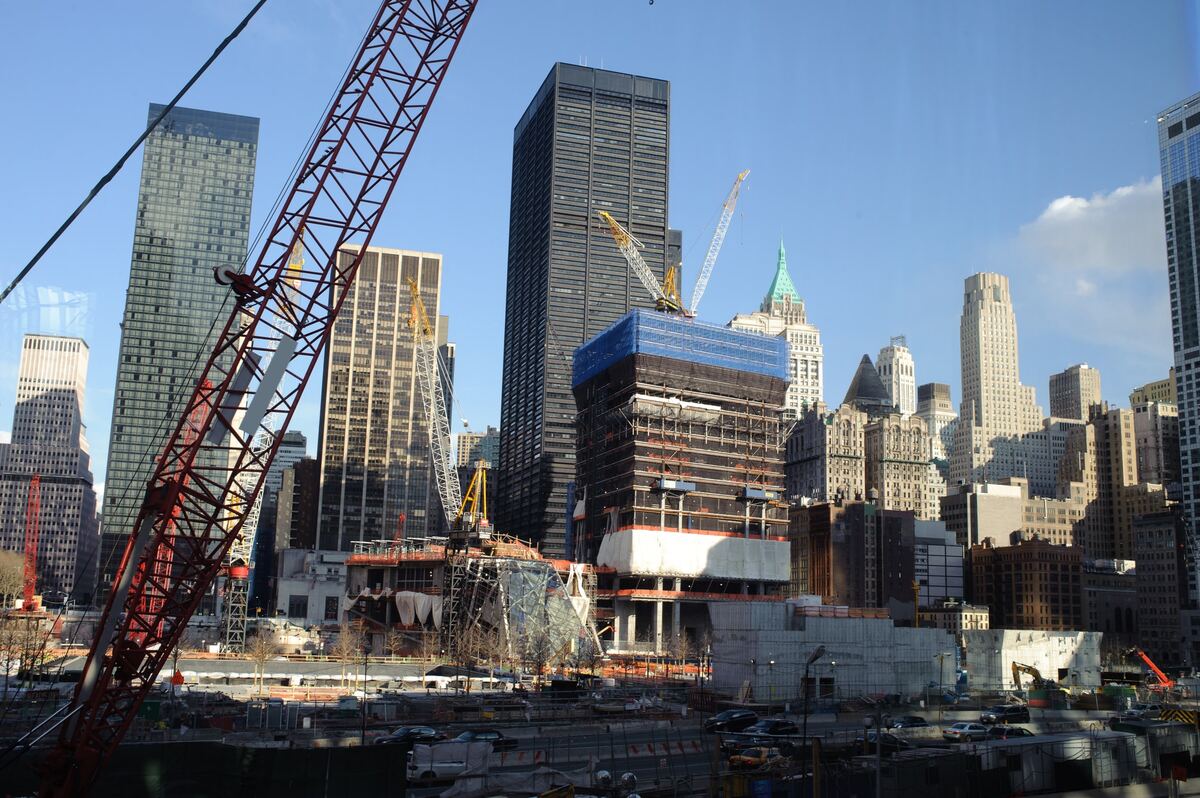

0 thoughts on “How To Start A Construction Company In NYC”